By Dashnor Kaloçi
Part twenty-four
Memorie.al / Exactly 43 years ago, on the morning of December 18, 1981, the Albanian Prime Minister Mehmet Shehu, who had held that position since 1953, was found dead in his bedroom (according to the official version, from a bullet from a pistol) in the villa where he lived with his family, at the entrance of the “Block” of the high leadership of the Albanian Party of Labor, just a few meters from the building of the Central Committee of the Albanian Party of Labor and also from Enver Hoxha’s villa. Although more than four decades have passed since that day, considered one of the most serious and notorious events of that regime, there is still no clear and accurate version regarding what happened to the former Albanian Prime Minister Mehmet Shehu on the night leading to December 18, 1981! However, even after the 1990s, dozens of testimonies and archival documents have been made public regarding that event, “the murder or suicide of Mehmet Shehu,” which continues to be the subject of numerous debates and discussions, even wrapping it further in mystery around the truth.
Based on this fact, in the context of publishing dozens of testimonies and files with archival documents from the secret fund of the former State Security and the Ministry of Internal Affairs, or the Central Committee of the Albanian Party of Labor, which we have published over the decades since the collapse of Enver Hoxha’s communist regime and his successor, Ramiz Alia, Memorie.al has secured the voluminous file “of the enemy Mehmet Shehu,” which has been extracted from the secret fund of the former State Security at the Ministry of Internal Affairs (now part of the fund of the Authority for Information on the Documents of the former State Security), where, with a few minor exceptions, most of them have never seen the light of publication and are made public for the first time in full.
In the mentioned file, there are the relevant facsimiles, the expert report of the investigative-operational group that was set up immediately on the morning of December 18, 1981, led by Koço Josifi (head of the Investigative Directorate of the Ministry of Internal Affairs of Tirana), the forensic doctors Dr. Fatos Hartito and Docent Bashkim Çuberi, the prime minister’s doctors, Milto Kostaqi and Llesh Rroku, as well as the criminalist expert from the Central Criminalistic Laboratory of the Ministry of Internal Affairs, Estref Myftari, assisted by high officials of that ministry, Xhule Çiraku, Elham Gjika, and Lahedin Bardhi.
Also, in the voluminous file that we are making public, there are testimonies from the family members of former Prime Minister Mehmet Shehu, from the service personnel, and his escort group, as well as from all other individuals who were summoned and testified about that event. Moreover, the documents in question, which we are publishing along with the facsimiles and relevant photos, provide more information regarding this matter.
However, even though we are dealing only with archival documents, it should be emphasized that; knowing how that system operated before the ’90s, we cannot claim absolute truth regarding what is written there, as not only from the individuals who provided their testimonies, but also from the investigators of this case, it has been made known that the testimonies were obtained under pressure, intimidation, and physical and psychological violence, with some investigators going so far as to write them themselves while the witnesses or defendants merely signed them.
Continued from the previous issue
PROTOCOL OF INTERROGATION OF THE FORMER MINISTER OF INTERNAL AFFAIRS FEÇOR SHEHU AND THE COMPARISON IN THE INVESTIGATION WITH THE ACCUSATIONS RAISED AGAINST HIM, BY SAMI MUHAMET PASHAJ, FORMER DIRECTOR OF ‘ALB-IMPORT’, WHO WAS SERVING A SENTENCE IN TIRANA PRISON (SECTION 313)
PROTOCOL
(Comparison)
Tirana, May 7, 1983
We, Pelivan Luçi, Florian Kolaneci, and Luan Bega, investigators of the Ministry of Internal Affairs, after studying the materials of the criminal case against the defendant Feçor Shehu and finding contradictions between his statements and those of the witness Sami, in order to resolve these, in the presence of the General Prosecutor of the People’s Republic of Albania, Rapi Mino, we conduct the comparison between them.
The witness Sami Muhamet Pashaj is questioned:
Question: Please explain, witness, do you know the person in front of you and what has your relationship been with him?
Answer: The person in front of me is Feçor Shehu, I know him well and until 1974, we had a very close relationship, which everyone in the city of Tirana knows, as we were always together. From 1974 until Feçor was arrested, we continued our relationship indirectly, through people he sent to me in Lushnje.
The defendant Feçor Shehu is questioned:
Question: Do you recognize the person in front of you, and if so, what has been your relationship with him?
Answer: I know the person in front of me, he is Sami Pashaj, and I had a good relationship with him until 1974, the time when he was expelled from the Party and left Tirana. Since that time, I have not met him again nor have I been interested in him.
The witness Sami Pashaj is questioned:
Question: Please explain, witness, what do you know about the hostile activities of the defendant Feçor Shehu?
Answer: As I mentioned above, until 1974, I had a close friendship with the defendant Feçor Shehu. During this time, Feçor and I often met and went out, entered cafes or Hotel “Dajti” and had various discussions. After 1974, when I was expelled from the Party, we broke off direct contact, but I want to say that we maintained indirect contacts, and it is not as Feçor said, that he severed all ties with me. I will explain this further below. In the meetings and discussions, I had with Feçor, he openly expressed to me his opposition to the line of the Party of Labor of Albania, and he constantly held a hostile stance against the Party and our country.
In the conversations he had with me, he always highlighted his dissatisfaction with the people’s government. Thus, he never missed an opportunity to express his grievances regarding the unfair treatment he believed he was subjected to, because (as he said), his wealthy family background was taken into consideration. I recall such dissatisfaction being expressed even when the elections for deputies to the People’s Assembly were held in 1970, when Feçor learned that a person from outside Mallakastra was proposed for deputy in the Hekal area, he nervously told me, “How is it possible that a local person is not elected, when we have all these sons from Hekal; this is not fair!”
Feçor Shehu maintained a stance completely contrary to the line of the Party of Labor of Albania regarding the 4th Plenary of the Central Committee of the Party of Labor of Albania in 1973 and the measures taken by this Plenary, especially for the revolutionary education of the youth in our country. From the time discussions began concerning the anti-Party activities of Fadil Paçrami and Todi Lubonja, Feçor, in conversations he had with me and Andrea Manço, openly took these elements under his protection and opposed the Party’s decisions.
Thus, I recall that in various discussions at that time, he expressed to me that the 4th Plenary was not right, because the 11th Festival of Song in Radio-Television had nothing wrong with it; on the contrary, it brought progress in the development of art and culture in our country. Both Todi Lubonja and Fadil Paçrami, at the time they made a significant turn in the development of art and culture, were unjustly condemned by the Party! Moreover, Feçor said, this festival was approved from above before it took place, but they later only blamed Todi and Fadili. Regarding the latter, I recall a conversation I had with him at that time.
While discussing these issues, I told Feçor about the activities of the Tirana district Party and mentioned that the First Secretary severely criticized Fadil Paçrami and Todi Lubonja. When I mentioned this, he interrupted me, saying that they only organized such an event and now they are blaming Fadil and Todi.
As I said, Feçor Shehu also held a hostile stance against the measures taken by the 4th Plenary of the Central Committee regarding the revolutionary education of the youth in our country. He considered these measures unjust because, in his view, they placed the youth under the Party’s tutelage, and the youth themselves could not endure such a thing. He argued that the youth, by their very nature, should have complete freedom of action, and for this, Fadil Paçrami and Todi Lubonja worked.
In this conversation, Feçor also made comparisons between the youth of our country and that of the Soviet Union and Hungary, expressing that just as in those countries, the youth of our country should also be nurtured. His views on the education of our youth were also expressed when we discussed Ismail Kadare’s novel, “The Winter of Great Solitude” (first edition). We discussed that part of the novel where the youth of “Rruga e Dibrës” (or “Broduej,” as the author referred to it) is mentioned. As Feçor said, the youth of our country should be as expressed in the book; this is also a reflection of the reality in our country.
We had hostile conversations with Feçor Shehu about the measures taken by the Party for the revolutionization of the army in our country as well. Additionally, several times when a Bulgarian embassy worker named Aleksandrov came to “Dajti,” he told me that he was a colonel in Bulgarian intelligence. These were some of the main aspects of the hostile conversations I had with Feçor Shehu, which I explained in detail during my depositions in the investigation.
The defendant Feçor Shehu is questioned:
Question: Defendant, did you hear the statements of witness Sami Pashaj, and what do you have to say about them?
Answer: I heard the statements of witness Sami Pashaj and I must say that I absolutely reject everything. I consider them slanders and trivialities. This conclusion clearly emerged from Sami’s testimony, where he claimed I told him all the issues he listed, while he was just listening! This is done intentionally so that Sami appears to be a victim, as if I have manipulated him, while until Sami was expelled from the Party, I only knew him as a communist. As for what Sami Pashaj testified, that I was interested in him, this relates to the fact that Sami became…………… and had a work object.
I want to emphasize that from the operational sector, I was proposed several times over the years, but I did not agree, as the rapid removal from Lushnja would not create a good impression, despite the fact that for work purposes, the Ministry made some moves during the 1970s. Therefore, we left Sami in Lushnje with an objective, and from 1980-1981, I approved the movement of the relevant sector to Kavajë, but when other cases for movement were also observed.
The Security employees met Sami Muhametin because……………. and not sent by me, according to my orders, as Sami says. Regarding my grievances, as Sami claims I expressed, that is not true. I emphasize that I have never expressed dissatisfaction to Sami about the election of a person who is not from Mallakstra as a deputy, since it is known that not all deputies of the People’s Assembly are from that area that are elected as such.
It is not true that I spoke to Sami against the 4th Plenary of the Central Committee of the Party of Labor of Albania, because not only did I wholeheartedly approve the decisions of this Plenary, but in some cases, for displaying liberalism, I raised my voice in the Party Committee of the respective ministry, the Party Committee of the district, and with the former Minister of Internal Affairs, Kadri Hazbiu.
It is true that we developed a conversation with Sami about the novel “The Winter of Great Solitude” by Ismail Kadare, because when that novel came out, there were discussions about it, and later the novel was analyzed. In this conversation, I defended the thesis that the novel stood out because it exposed Soviet revisionism and raised the role of our Party against modern revisionism, even though it had some flaws, such as the case where a road was mentioned where the youth stayed, etc.; but I never expressed myself as Sami claims. For accuracy, you should also ask Zija Këlliçi, who was present in the conversation.
Regarding what Sami says about the army, these are not true, because my own practice and positions towards the measures for ranks and other matters in the military are in favor of the Party line. For accuracy, when the Open Letter of the Central Committee of the Party of Labor of Albania was released, I was working in Shkodër and had no contact with Sami.
As for Beqir Balluku, when I returned from Vienna, without meeting with Sami Muhametin, I told Kadri Hazbiu to arrest him, and not as Sami claims! It is true that I was on vacation with Sami Muhametin at the Ministry of Internal Affairs’ Rest House in Durrës, but I did not talk to him at all about what stance Sami should take in the base organization meeting regarding Beqir Balluku!
I emphasize that for Party issues, regarding Sami or any other person who addressed me, my response has been in accordance with the Party’s statute; every communist should address the Party according to the rules that the Party has. As I mentioned earlier, I had a friendship with Sami until he was expelled from the Party, but whenever I met him, I did not give importance; I only know that in every conversation with him, I was in favor of the Party line.
All that Sami says about Hito Çako and Petrit Dume is not true, because I interrogated them myself. Likewise, I had no illusions about the breakup with the Soviet Union. I did not say that Tito is a great figure or anything else as Sami claims, and I did not advocate for the standard of living in Austria, as I was in the hospital there.
Regarding the cadre policy and my positions towards the workers, as Sami says, my practice in the Ministry of Internal Affairs should be examined to see if I brought my people into those bodies, as well as the fact regarding how many workers were brought into those bodies. It is not true that I have discussed in a private room with the barber of Hotel “Dajti,” Xhaviti. I emphasize that I sent word to Sami Pashaj, for the sake of………., as we also use………….others, to work for the sake of the cause.
The aim was encouragement and nothing else, while regarding Ferik Hyseni and Hasan Basha, it is not true that I sent them any news. I do not know what they did on their part. When I went for lunch at Hotel “Tirana,” I took them for lunch, but they were also with other people, like Çome Asimaqi, etc., whom I do not recall. Regarding the issue of re-admission to the Party, I remember Kristofori told me about it, but my response regarding this matter was that Sami should address it himself according to the regulations with a request, as the Security does not deal with this.
In conclusion, the defendant and the witnesses were asked once again if they had anything else to add, and after standing by their statements, the confrontation was interrupted.
The protocol is read by the defendant and the witness, and after finding it written as they stated in their depositions, they respectively sign it without comments./Memorie.al
The Defendant The Witness
Feçor Shehu Sami Pashaj
The Investigators
Luan Bega Pelivan Luçi Florjan Kolaneci
Present: General Prosecutor of the People’s Republic of Albania
Rapi Mino
Continued in the next issue




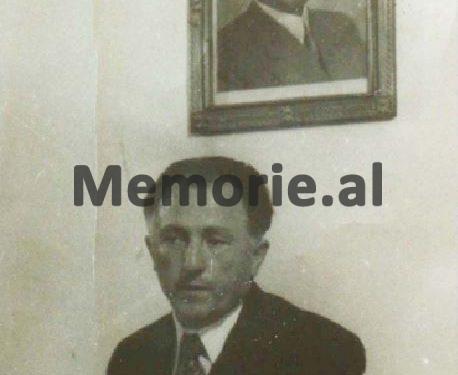

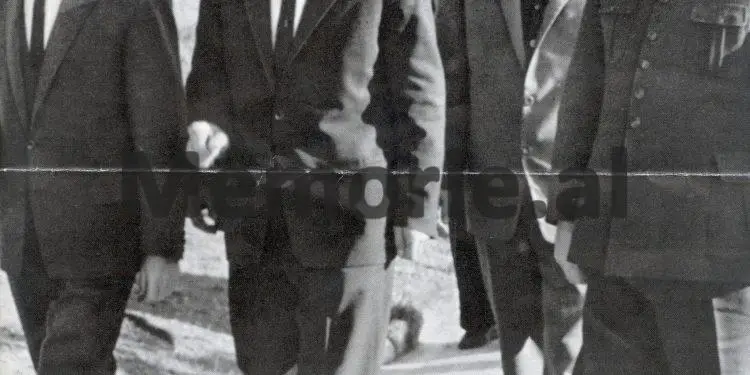

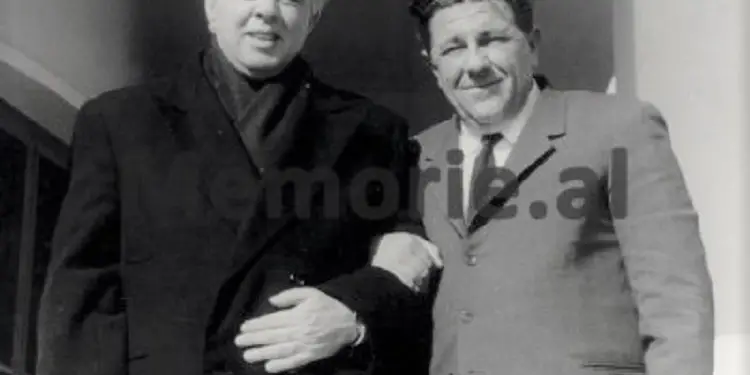


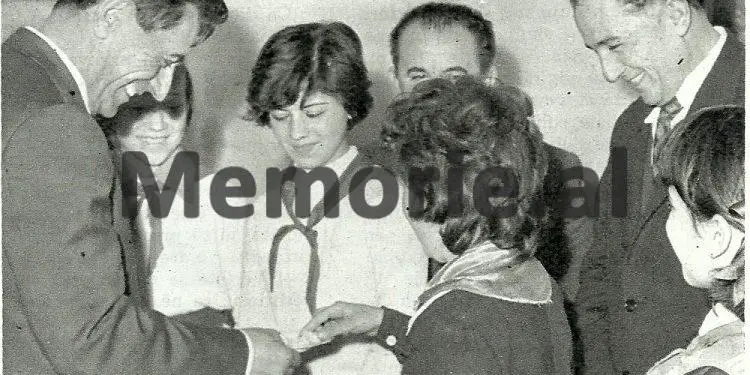
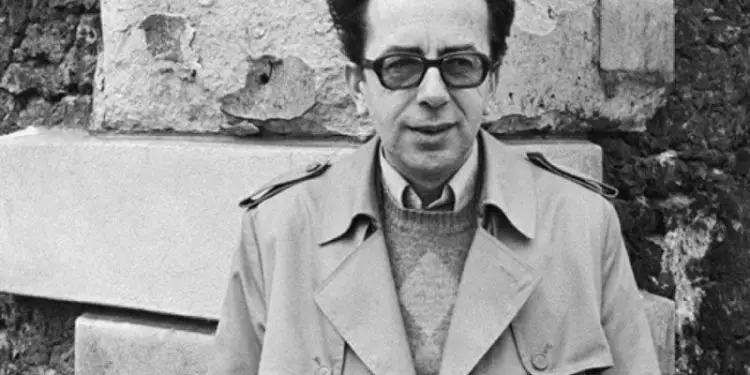
![“When the party secretary told me: ‘Why are you going to the city? Your comrades are harvesting wheat in the [voluntary] action, where the Party and Comrade Enver call them, while you wander about; they are fighting in Vietnam,’ I…”/ Reflections of the writer from Vlora.](https://memorie.al/wp-content/uploads/2025/06/admin-ajax-4-350x250.jpg)


![“The ensemble, led by saxophonist M. Murthi, violinist M. Tare, [with] S. Reka on accordion and piano, [and] saxophonist S. Selmani, were…”/ The unknown history of the “Dajti” orchestra during the communist regime.](https://memorie.al/wp-content/uploads/2026/02/admin-ajax-3-350x250.jpg)
![“In an attempt to rescue one another, 10 workers were poisoned, but besides the brigadier, [another] 6 also died…”/ The secret document of June 11, 1979, is revealed, regarding the deaths of 6 employees at the Metallurgy Plant.](https://memorie.al/wp-content/uploads/2026/02/maxresdefault-350x250.jpg)

